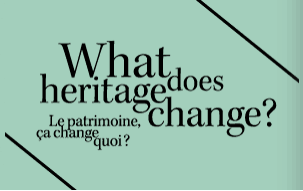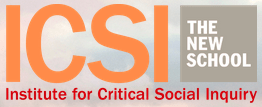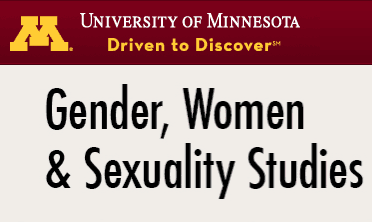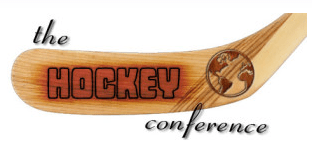It’s Autumn (at least here in Europe), days are becoming shorter and you’re feeling a bit low? Worry no more dear Allies! We have put together this list of upcoming events to cheer you up! As usual, you will wonder what’s the link between them but now that you’re more familiar with Allegra and its mission to explore anthropology, law, art and the world, you should not be too surprised. There is a bit of everything we fancy in this list: discussions on Open Access, art, critique (see our recent interview with Ann Stoller to get an idea of its new Institute for Critical Social Inquiry), heritage and even hockey (why not?). We wish our little team could attend each of these events and report on them… But fortunately, we know we can trust our Allies wherever they are based to do that for us.
Do get in touch with Andrea at andreak@allegralaboratory.net or Aude at audef@allegralaboratory.net if you want your event to be featured in our next monthly list…and send us your reports on events you organised. All this information is then stored in our calendar and shared on social media platforms. We look forward to hearing from you!
Conference Series:  JAO2015: Open Access and Open Science
JAO2015: Open Access and Open Science
12-13-14 October 2015, Couperin.org, 155 blvd de l’Hôpital, Paris, France
Two years after the January 2013 conference series during which Mrs. Geneviève Fiora, French Minister for Higher Education and Research presented France’s stance on Open Access, this conference series will discuss the stakes and progress of Open Access in France and in Europe. [more]
 Conference: AAI – Caring Cultures / Cultures of Care
Conference: AAI – Caring Cultures / Cultures of Care
Week of 14 March 2016, Maynooth University, Ireland
Keynote Speaker: Professor Arthur Kleinman, Department of Anthropology, Harvard University and Department of Social Medicine, Harvard Medical School.
Care is infrastructural for human beings. Humans experience extreme dependency early in life, usually require at least some assistance at its end, and are likely to require periods of care in their middle years. Nonetheless, while studies of technologies of care have a long intellectual history (especially in Nursing), care as such has not been central to classic analyses of social life.
Feminist Philosophy and Moral Reasoning, however, engaged care in a serious intellectual way in the 1980s, while the topic has also emerged as a significant policy and economic anxiety in demographically graying societies during the last fifteen years or so. Since this point, “care” has developed into both a cross-roads and a meeting place for very different critiques of the idea of the bounded, calculating and self-interested subject presumably at the heart of capitalist social formations. Care now positively structures everything from new politics, different economics, new forms of social analysis, genres of art and performance practice, and, indeed, a potentially lucrative area for capital investment. Concepts of care are located in environment/sustainability studies, conflict and human rights, mobility studies, equality studies, and multiple other sites. Still, there are few direct measures of formal care, and the number of studies of informal care-giving (while growing) remains significantly under-developed in comparison to its ubiquity in social life. [more]
Deadline for submission of abstracts: 1 December 2015
 Third Biennal Conference: What does heritage change?
Third Biennal Conference: What does heritage change?
6-10 June 2016, University of Quebec in Montreal, Canada
Heritage is a powerful witness to mindsets and Zeitgeist; it is commonly understood that it gives way to a better understanding of societies and even brings together communities. But how does this happen? Can heritage affect reality? What does it change?
From June 6th to 10th 2016, the Canada Research Chair in Urban Heritage of UQAM’s School of Management, in collaboration with Concordia University and the Center for Oral History and Digital Storytelling, will host the Association of Critical Heritage Studies’ Biennial Conference under the theme “What does heritage change?”. More than 75 sessions, round tables, and research-creation installations, submitted by organizers from forty different countries, have been peer-reviewed and accepted by the scientific committee. [more]
Deadline for submission of paper or poster proposals: 1 November 2015
 Summer seminars: Jay Bernstein, Judith Butler and Gayatri Spivak to lead seminars at the Institute for Critical Social Inquiry.
Summer seminars: Jay Bernstein, Judith Butler and Gayatri Spivak to lead seminars at the Institute for Critical Social Inquiry.
12-18 June 2016, The New School for Social Research, New York
This summer, The New School’s Institute for Critical Social Inquiry (ICSI), will launch its second year of Summer Seminars. Housed at The New School for Social Research (NSSR) in New York City, the ICSI, founded and directed by Ann Laura Stoler, offers advanced graduate students and faculty from around the world a weeklong Fellowship in which they work closely with eminent scholars who have shaped how we think today.
The Summer Seminars will run from June 12-18, 2016 and will be led by Jay M. Bernstein (New School for Social Research), who will convene the seminar Of Masters and Slaves: Reading Hegel’s Phenomenology; Judith Butler (University of California, Berkeley), who will convene the seminar Freud to Klein: Death Drive, Pleasure, Ethics; and Gayatri Chakravorty Spivak (Columbia), who will convene the seminar Why Marx Today? [more]
Deadline for application: 1 December 2015
 Graduate Student Symposium: Queer Publics, Queer Praxis [QP^2]
Graduate Student Symposium: Queer Publics, Queer Praxis [QP^2]
1 April 2016, University of Minnesota, Twin Cities
“Queer Publics, Queer Praxis [QP^2]” is a graduate student symposium attending to the relationships between community engagement, social justice and academic work.
“Community,” or as Miranda Joseph puts it, “the romance of community,” is often a loaded signifier at the University. Community work is extracurricular, or imagined to be untouched by the work that goes on at the University (or by academics who work with/in “communities”).
What then does it mean to engage in queer praxis? To build and work within queer publics? How is community work co-constitutive with queer studies?
Who is being engaged and produced through different forms of engagement? What are the politics of doing so?
To pose the question in a different way: How can and do we work queerly for justice? What even is queer work? Can we queer work? What are the processes? [more]
Deadline for submission of abstracts and panel propositions: 30 November 2015
 Conference: The Hockey Conference 2016
Conference: The Hockey Conference 2016
6-8 July 2016, University of New Brunswick, Fredericton, NB, Canada
The Hockey Conference invites abstract submissions from scholars and artists in various fields, whose work engages with the sport of hockey (in its diverse forms) in a multitude of ways, including (but not limited to) artistically, historically, empirically, and conceptually. [more]
Deadline for submission of abstracts: 4 December 2015


